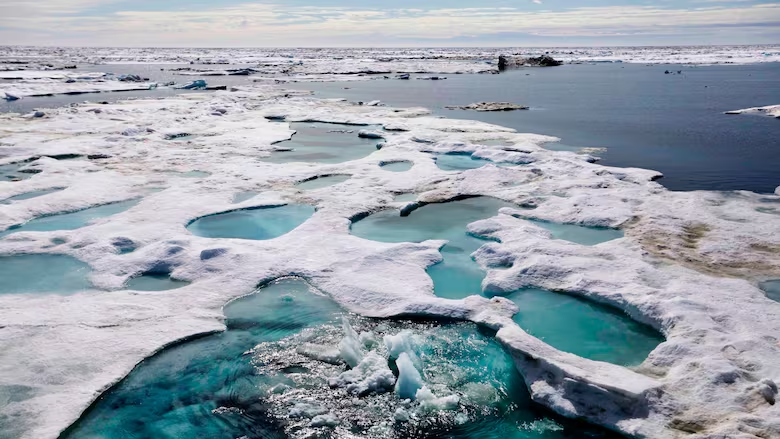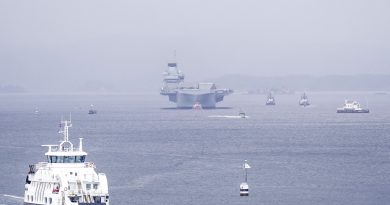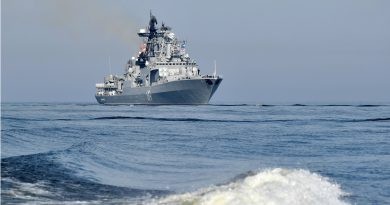Local Indigenous communities key to Arctic security, experts say

Leaders in N.W.T. Arctic communities say they haven’t heard from feds on policy announced last week
Experts say that as the eyes and ears of the Arctic, local communities are the key to Canada’s new Arctic foreign policy — though some northern leaders say they haven’t heard what the announcement will mean for them.
The new policy, announced Friday, highlights the key role of the region’s Indigenous communities, and experts in transatlantic defence say that collaboration with Arctic communities is essential as the region sees more marine traffic as sea ice melts, as well as mounting territorial threats from Russia and China.
“Engagement with these communities, continued protection and economic development of these communities, is the best weapon we have, in a way,” said Mathieu Boulègue, senior fellow of transatlantic defence and security with the Center for European Policy Analysis (CEPA).
During a news conference Tuesday morning, Boulègue said that much of Canada’s new policy is about coordinating with allies to have clear roles and be more present in the region.
Boulègue was among several experts in transatlantic defence with CEPA who took part in Tuesday’s news conference and spoke about the importance of local involvement.
Leaders of Arctic communities not clear on role in strategy
Inuvik, N.W.T., Mayor Peter Clarkson said there is already work to strengthen military capacity in his community but he hasn’t heard from anyone in the federal government about how the new foreign policy would affect Inuvik.
The territory’s hub in the Arctic is already expanding its airport runway from 6,000 to 9,000 feet, to support larger military planes, a project expected to be complete in 2027.
Clarkson said he also expects the department of national defence to add more communications infrastructure in Inuvik.
In August, the federal defence minister came to Inuvik and spoke about the community’s importance in supporting Canada’s military.
Clarkson became mayor in November and said he plans to follow up on that visit to discuss how Inuvik, and the Beaufort Delta region, fit within larger national defence plans.
Paulatuk, N.W.T., Mayor Ray Ruben also said he has not heard about how Beaufort Delta communities will fit into Canada’s larger Arctic defence policy.
At a Yukon news conference in November, Premier Ranj Pillai made a similar point about the role of communities when it comes to protecting their own territory. He cited the suspected balloon shot down in February 2023, saying community members were key in the response.
Boulègue, the transatlantic defence expert, told CBC that Canada is “a leading voice” when it comes to safeguarding the Arctic. He said Canada seems to understand the link between Arctic defence and climate change, and how communities are at the heart of Arctic security strategy because residents have the most at stake in protecting the region.
“This is very much a question of the daily livelihood of these populations,” Boulègue said.
Related stories from around the North:
Canada: Canada to open consulates, appoint Arctic ambassador under new foreign policy, The Canadian Press
Finland: Russian cyber attacks, espionage pose growing threat to Finnish national security, Yle news
Iceland: Iceland authorizes U.S. submarine service visits, Eye on the Arctic
Norway: Russian jamming disrupting GPS signals for Norwegian aviation almost daily, The Independent Barents Observer
Russia: Russia accuses US of stoking tensions in the Arctic, The Independent Barents Observer
Sweden: Swedes must mentally prepare for war, says military top brass, Radio Sweden
United States: Space takes centre stage in U.S. Department of Defense Arctic strategy, Eye on the Arctic



